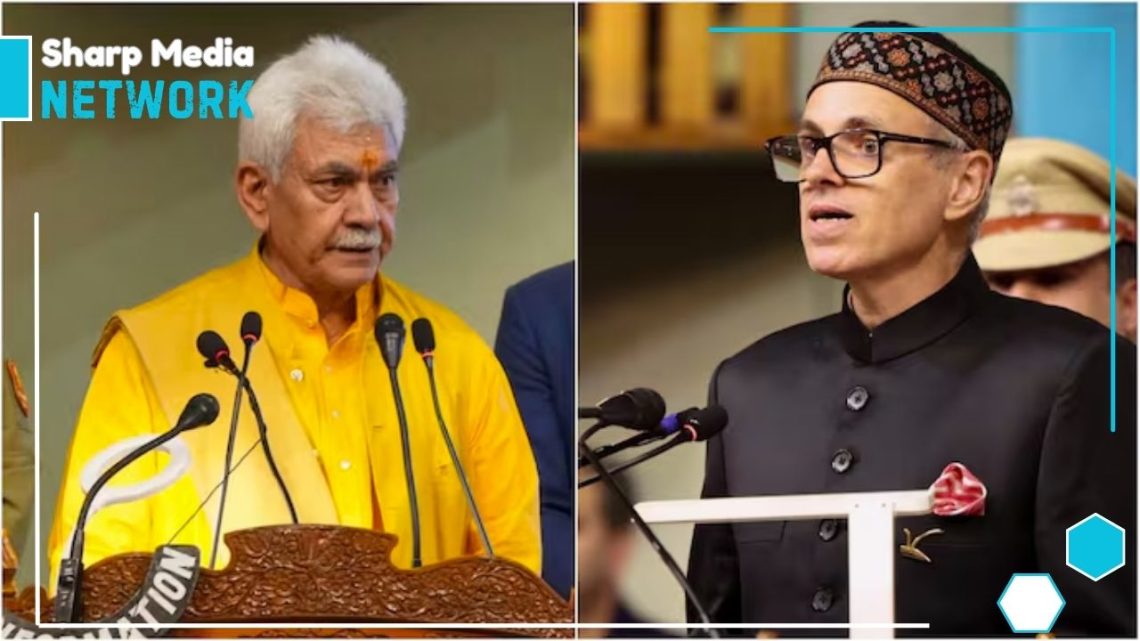
Omar Abdullah: IIOJK CM in Name, But Not in Power
January 11, 2025 Off By Sharp MediaOmar Abdullah’s tenure as Chief Minister (CM) highlights the complexities of governance in IIOJK, where power dynamics and controversial policies fuel dissent and disillusionment.
Omar Abdullah, the first elected Chief Minister of Indian Illegally Occupied Jammu and Kashmir (IIOJK) after the region’s special status was revoked in 2019, faces a governance structure that limits his authority and compounds the challenges of leadership. The Jammu and Kashmir Reorganization Act, 2019, has fundamentally altered the region’s political landscape by transferring substantial power to the Lieutenant Governor (LG), an official directly appointed by the Indian government. This move has reduced the role of the elected government to a symbolic presence, straining relations between New Delhi and the people of IIOJK.
The removal of Article 370, which previously granted the region a degree of autonomy, has been followed by policies that many Kashmiris view as discriminatory and provocative. Among these is the controversial reservation policy, which allocates 60% of seats in jobs and educational institutions to minority tribes while leaving the majority population to scramble for the remaining 40%. Critics argue that this policy not only disrupts the social balance but also marginalizes already disadvantaged groups within the majority population.
The new system has particularly angered the youth, who are already grappling with an unemployment crisis. Many young Kashmiris feel sidelined, perceiving the policies as tools of systemic exclusion. The lack of opportunities and the perceived indifference of the administration have exacerbated feelings of alienation and hopelessness among the younger generation. This growing despair is evident in the rising social unrest and protests across the region, as the government fails to address their grievances or provide viable solutions.
The frustration is not limited to reservation policies alone. Many see the overarching control of the Indian government as a deliberate effort to suppress the voice of the Kashmiri people. The elected government under Omar Abdullah has been unable to counter these policies effectively, leading to widespread disillusionment with the National Conference’s leadership. The party’s inability to address critical issues, such as unemployment, economic stagnation, and social inequalities, has further eroded public trust.
Moreover, the increased militarization and surveillance in the region add to the challenges faced by ordinary citizens. The frequent imposition of restrictions, curfews, and heavy security measures disrupt daily life, leaving the population feeling suffocated under the weight of occupation. These actions, coupled with controversial governance policies, paint a grim picture of a region struggling to maintain its identity and aspirations under a tightly controlled system.
The broader implications of these policies have not gone unnoticed by the international community. However, calls for intervention and accountability have largely been ignored by the Indian government, leaving the people of IIOJK to bear the brunt of policies that prioritize control over development and stability.
Omar Abdullah’s tenure as Chief Minister symbolizes the challenges of navigating a governance structure where real power lies elsewhere. His limited ability to influence decisions has left the Kashmiri people disillusioned with both their elected leaders and the overarching system. This ongoing disconnect between the aspirations of the people and the policies imposed upon them continues to fuel unrest, leaving the future of the region uncertain and fraught with tension.

